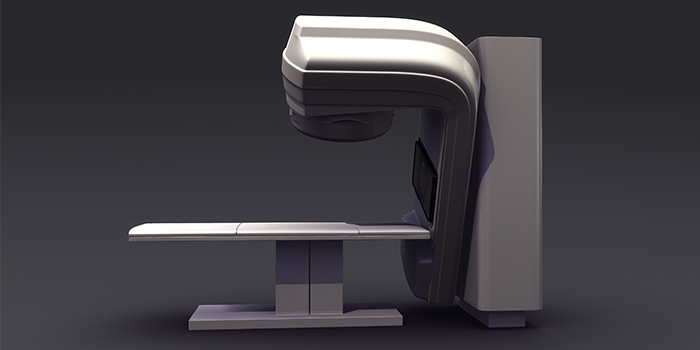The three main ways to treat mesothelioma are by surgery, chemotherapy and radiation therapy. Of these, the one used least often is radiation therapy.
Researchers from the Icahn School of Medicine at Mount Sinai in New York City say radiation therapy ought to be used more often.
They say this because they have done research that shows there is a link between the use of radiation therapy and improved mesothelioma survival.
Mesothelioma Survival Is the Goal
Survival is the name of the game when you have mesothelioma. So anything that safely helps extend mesothelioma survival is a good thing.
The Mount Sinai researchers say that radiation all by itself can be helpful in extending mesothelioma survival. But they note that it’s more helpful when combined with other mesothelioma treatments.
They say it’s even more helpful on top of that when radiation is provided by doctors at a mesothelioma center operated by a university.
The researchers suggest that radiation therapy provided by a university may be better because an academic center is more likely to have all the latest and greatest in technology and techniques.
They gave their views about mesothelioma radiation therapy in an article they wrote for the International Journal of Radiation Oncology.
They described a study they conducted to find out how often definitive radiation therapy is used in the treatment of malignant pleural mesothelioma.
The study also was aimed at measuring the connection between definitive radiation therapy and overall mesothelioma survival rates.
The researchers define definitive radiation therapy as 40-65 Gy of radiation from an external-beam system targeted at a mesothelioma patient’s chest wall, lungs or pleura.
The study involved first gathering the records of 23,414 mesothelioma patients. These records came from the National Cancer Data Base. They covered the period from 2004 through 2013.
All of these patients were diagnosed with invasive, non-metastatic pleural mesothelioma.
Next, the researchers narrowed this very large number down to 14,019. Half of this group was older than 74 at the time of diagnosis with mesothelioma. The other half was younger than 74.
Few Mesothelioma Patients Get Radiation Therapy
Almost exactly half of the 14,019 mesothelioma patients had received chemotherapy at some point. Twenty percent had undergone mesothelioma surgery.
But only 3.6 percent had received definitive radiation therapy. The researchers were surprised by how low this number was. They were especially surprised given how helpful definitive radiation therapy can be.
“The rate of definitive radiation therapy utilization for non-metastatic malignant pleural mesothelioma has remained low over the past decade,” they wrote.
According to the researchers, mesothelioma patients who were treated with definitive radiation therapy had better overall survival compared to those who were not treated with it.
Specifically, the two-year overall survival rate for patients who received radiation was 33.2 percent. It was 19.4 percent for patients who did not receive radiation.
The five-year overall survival rate for radiation patients was 12.4 percent. For non-radiation patients it was 5.2 percent.
“Definitive [radiation therapy] was associated with improved survival,” they concluded.
They said their findings suggest that there is a role for “increased utilization of [definitive radiation therapy].”
The title of their article is “Definitive Radiation Therapy Is Associated with Improved Survival in Non-Metastatic Malignant Pleural Mesothelioma.”

